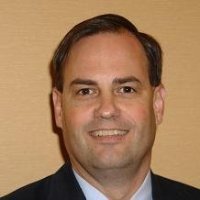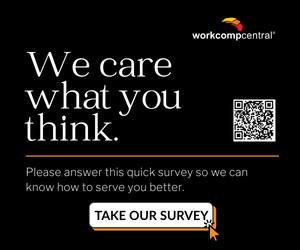Industry Insights
July 16, 2020
Langham: Yes and No Defense Explained
- State: Florida
- - 0 shares
There is nuance in the law. It often escapes us, and a good explanation of seeming contradiction is helpful.

Judge David Langham
When it appears that the answer to a question we thought was "yes" turns out to be "no," the result can be confusion. But the most hated answer that clients receive from lawyers is "it depends."
As one blogger notes, this answer comes from the fact that it really does depend. A recent Florida workers' compensation appellate decision illustrates that and provides a poignant reminder of our challenges.
Early in 2020, the Florida 1st District Court decided McNair v. Dorsey. The case began as a workers' compensation matter and evolved into a Circuit Court litigation. This decision was an appeal from the Circuit Court in Leon County upon which the court opinion is based. The process and the outcome are instructional.
Two parties in the case, McNair and Dorsey, were coworkers employed by Armstrong Tree Service. McNair claimed an injury at work and filed for workers' compensation benefits. Two petitions were filed — a pretrial compliance questionnaire was completed, and the employer contended that "McNair’s accident did not occur within the course and scope of his employment."
Remember, "course and scope" is a criterion for workers' compensation, discussed at length in Personal Comfort? Testing Compensability.
In addition, the employer contended, "McNair fraudulently misrepresented his prior medical and employment history" in the course of their relationship. Thereafter, McNair "voluntarily dismissed his workers’ compensation petition," and filed a civil lawsuit "alleging negligence" on behalf of the employer and his coworker Dorsey.
The response was, essentially, that workers' compensation immunity precluded the civil lawsuit. McNair responded that the employer should be precluded from such an argument because of its earlier allegation denying course and scope.
The court explained the application of workers’ compensation immunity. It explained that workers' compensation is generally the "exclusive remedy for an employee injured in the course and scope of employment.” Upon that statutory authority, the Circuit Court granted summary judgment in favor of the employer, "concluding that McNair’s exclusive remedy was through a workers’ compensation claim."
The District Court reiterated that immunity and explained that it is not absolute. The employer may, through conduct, find itself outside of that protection if the conduct would render it "inequitable for the employer to invoke" immunity. The court reminded that estoppel in that setting requires three things to be established:
- A representation of a material fact that is contrary to a later asserted position.
- Reliance on that representation.
- A change in position detrimental to the party claiming estoppel that is caused by the reliance on said representation.
Thus, an employer may be denied the protection of the immunity when the "employer denies the employee’s claim by asserting that the injury did not occur in the course and scope of his or her employment.”
A critical word in that explanation is the word "may." The court expounded that despite the "may," there was not a foundation to say that such a denial would always foreclose the defense of exclusive remedy.
The court explained that estoppel of the ability to rely on immunity "may" be appropriate in some factual settings. It explained such a situation decided by the Florida 5th District. There, the employer did not deny the occurrence of an injury but disputed that it occurred "in the course and scope."
That court concluded that "the employer was estopped from claiming workers’ compensation exclusivity" in the civil case because it thus denied the admitted event (injury) was covered by workers' compensation in one proceeding and then "reversed that position in the later tort suit," essentially arguing that the admitted event did belong in workers' compensation.
The 5th District explained in that case (Byerley v. Citrus Publishing) that such a reversal of argument "would 'allow employers to avoid all liability for employee job-related injuries.'"
The 1st District explained in McNair that it found no credence in the "course and scope" argument raised, but instead that defense in his case was, essentially, "that no accident causing injury occurred at all." Thus, the court concluded that the defenses raised in workers' compensation and the civil action were "not inconsistent," and thus there was no reason for the employer to be estopped from asserting that defense in the Circuit Court.
For clarity, "An employer is not estopped from asserting workers’ compensation exclusivity merely because it had denied compensability of an alleged workplace injury."
The determination of whether a compensable event occurred is appropriate for the Office of Judges of Compensation Claims. Thus, a denial that someone was an employee might preclude a later defense of workers' compensation immunity in Circuit Court.
There is a distinction between denying compensability and denying ("much more") "that the employee belonged in a compensation forum at all." If denying that the case belongs before the judge of compensation claims, then the affirmative defense of workers' compensation immunity thereafter may be tenuous at best.
It's an interesting case and an explanation of distinctions that is perhaps helpful to those who litigate Florida workers' compensation claims. The answer may be "yes" and "no," with the unliked and underappreciated "it depends" to steer us all back to the crucial point upon which the estoppel analysis for immunity depends.
David Langham is deputy chief judge of the Florida Office of Judges of Compensation Claims. This column is reprinted, with his permission, from his Florida Workers' Comp Adjudication blog.
Advertisements
Columns
- Paduda: Health Care Is Missing the Point 01/26/26
- Kamin: AI Citations Present Cautionary Tale for Attorneys 01/20/26
- Barthel: Is Rodriguez Worth It? 01/16/26
- Tolentino: Keep Your Friends Close, but Your Enemies Closer 01/14/26
- Young: The Top 2025 California Workers' Comp Developments 01/09/26
- Langham: Not Always an Accident 01/07/26
- Barthel: Is SIBTF a Great Idea Gone Awry? 01/05/26
- CAAA: New Comp Laws Take Effect in 2026 12/31/25
- Opalisky: The Ongoing War Over State's Statutory Employer Doctrine 12/30/25
- Kamin: Our Top 10 Blogs of 2025 12/26/25
- Barthel: Are You an Employer, or Do You Use Independent Contractors? Can You Prove It? 12/24/25
- Barthel: Is Pot a Defense? Are You High? 12/22/25
- Barthel: Is Dubon II on the Way Out? 12/17/25
- Montgomery: San Fran City Official Stole $627k From Workers' Comp Division 12/10/25
- Kamin: Ring the Bells for Settlement Season 12/08/25
- Paduda: Does Comp Care About Workers? 12/05/25
- Sandoval: Throwing Subrogation Under the Bus 12/03/25
- Johnson: Some Thoughts on Apportionment - And SIBTF 11/20/25
- Montgomery: State's First Responders May File Comp Claims for Trauma 11/14/25
- Snyder: Use This New Survey to Negotiate Better 11/12/25
Now Trending
- Workers' Compensation News
-
Calif. Uninsured
Staffing Agency Ordered to Pay…
Posted on Jan 21, 2026
-
Calif. City
Attorney Announces $4.5M
Misclassification…
Posted on Jan 22, 2026
-
Iowa Report: Owner
of Waste Management Company Admits
to Not Having…
Posted on Jan 23, 2026
-
Calif. Broker Not
Bound by Duty of Care to
Contractor's…
Posted on Jan 22, 2026
-
Calif. Nearly All
Subjects Pass UR Audits in 2025;
Only $2,500 in Penalties…
Posted on Jan 21, 2026
-
Ariz. No Benefits
for Man Who Accidentally Shot…
Posted on Jan 23, 2026
-
Calif. Hearing
Scheduled for COLA Bill Carried
Over From…
Posted on Jan 21, 2026
-
N.Y. Attorney's
Improper Communication With Doctor
Results in Denial of Worker's…
Posted on Jan 22, 2026
-
Ga. Bill Would
Exempt 'Gig' Nurses From…
Posted on Jan 20, 2026
-
Ariz. Court Says
Worker Didn't Make Valid Assignment
of…
Posted on Jan 22, 2026
Jobs
- Defense WC Attorney Wanted- We will beat any offer for the right candidate. Low billables, real bonuses and fast track equity partnership
- Associate Attorney
- WC DEFENSE ATTORNEY (REMOTE)
- AA Work Comp hearing rep or attorney: Remote Job
- ATTORNEY - Workers Comp Defense
- Legal Assistant/Paralegal–Workers’ Comp
- Attorney for Northern California Workers' Compensation Jobs
Upcoming Events
Mar 3-4, 2026
Save The Date! WCRI’s 2026 Ann
Registration will open up in the coming months. We'll see you there! - Leading national workers' …
Mar 5-6, 2026
DWC’s 33rd Annual Educational
Register Now! 2026 conference topics: DWC Update AI with a Claims Focus Medical and Legal Ethics …
Mar 19-20, 2026
DWC’s 33rd Annual Educational
Register today! 2026 conference topics: DWC Update AI with a Claims Focus Medical and Legal Ethi …
Social Media Links
c/o Business Insurance Holdings, Inc.
Greenwich, CT 06836




No Comments
Log in to post a comment